Huabin Zhu
Rethinking the Representation in Federated Unsupervised Learning with Non-IID Data
Mar 25, 2024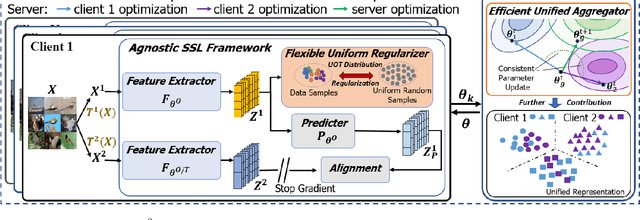

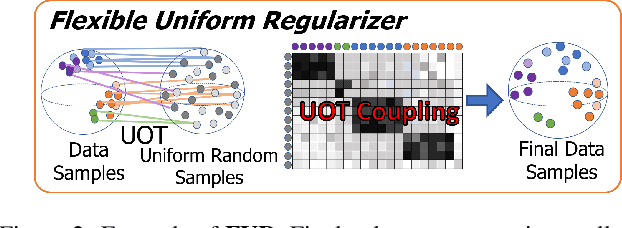
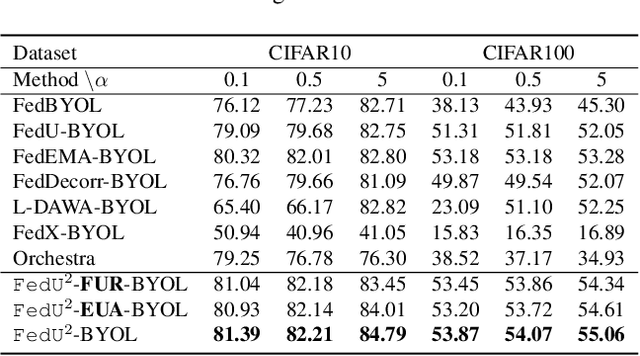
Abstract:Federated learning achieves effective performance in modeling decentralized data. In practice, client data are not well-labeled, which makes it potential for federated unsupervised learning (FUSL) with non-IID data. However, the performance of existing FUSL methods suffers from insufficient representations, i.e., (1) representation collapse entanglement among local and global models, and (2) inconsistent representation spaces among local models. The former indicates that representation collapse in local model will subsequently impact the global model and other local models. The latter means that clients model data representation with inconsistent parameters due to the deficiency of supervision signals. In this work, we propose FedU2 which enhances generating uniform and unified representation in FUSL with non-IID data. Specifically, FedU2 consists of flexible uniform regularizer (FUR) and efficient unified aggregator (EUA). FUR in each client avoids representation collapse via dispersing samples uniformly, and EUA in server promotes unified representation by constraining consistent client model updating. To extensively validate the performance of FedU2, we conduct both cross-device and cross-silo evaluation experiments on two benchmark datasets, i.e., CIFAR10 and CIFAR100.
Joint Local Relational Augmentation and Global Nash Equilibrium for Federated Learning with Non-IID Data
Aug 17, 2023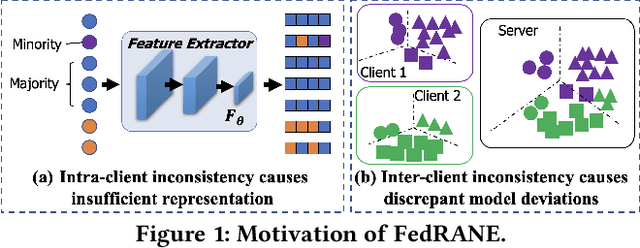
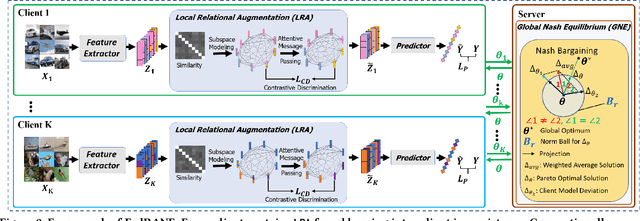

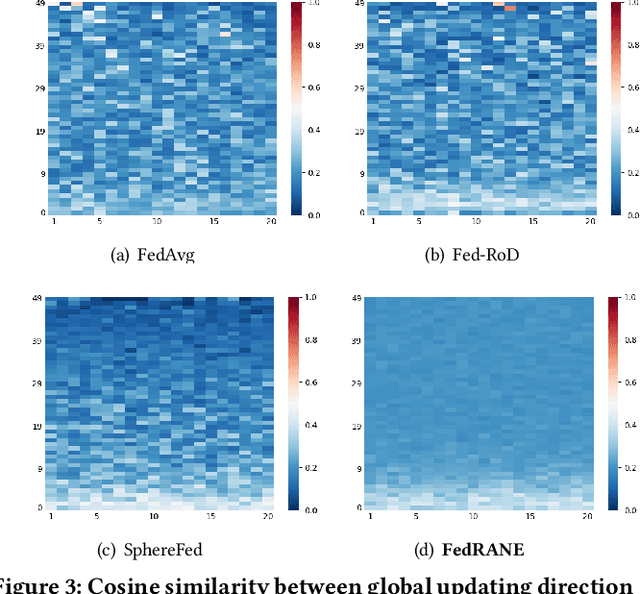
Abstract:Federated learning (FL) is a distributed machine learning paradigm that needs collaboration between a server and a series of clients with decentralized data. To make FL effective in real-world applications, existing work devotes to improving the modeling of decentralized data with non-independent and identical distributions (non-IID). In non-IID settings, there are intra-client inconsistency that comes from the imbalanced data modeling, and inter-client inconsistency among heterogeneous client distributions, which not only hinders sufficient representation of the minority data, but also brings discrepant model deviations. However, previous work overlooks to tackle the above two coupling inconsistencies together. In this work, we propose FedRANE, which consists of two main modules, i.e., local relational augmentation (LRA) and global Nash equilibrium (GNE), to resolve intra- and inter-client inconsistency simultaneously. Specifically, in each client, LRA mines the similarity relations among different data samples and enhances the minority sample representations with their neighbors using attentive message passing. In server, GNE reaches an agreement among inconsistent and discrepant model deviations from clients to server, which encourages the global model to update in the direction of global optimum without breaking down the clients optimization toward their local optimums. We conduct extensive experiments on four benchmark datasets to show the superiority of FedRANE in enhancing the performance of FL with non-IID data.
HyperFed: Hyperbolic Prototypes Exploration with Consistent Aggregation for Non-IID Data in Federated Learning
Jul 26, 2023



Abstract:Federated learning (FL) collaboratively models user data in a decentralized way. However, in the real world, non-identical and independent data distributions (non-IID) among clients hinder the performance of FL due to three issues, i.e., (1) the class statistics shifting, (2) the insufficient hierarchical information utilization, and (3) the inconsistency in aggregating clients. To address the above issues, we propose HyperFed which contains three main modules, i.e., hyperbolic prototype Tammes initialization (HPTI), hyperbolic prototype learning (HPL), and consistent aggregation (CA). Firstly, HPTI in the server constructs uniformly distributed and fixed class prototypes, and shares them with clients to match class statistics, further guiding consistent feature representation for local clients. Secondly, HPL in each client captures the hierarchical information in local data with the supervision of shared class prototypes in the hyperbolic model space. Additionally, CA in the server mitigates the impact of the inconsistent deviations from clients to server. Extensive studies of four datasets prove that HyperFed is effective in enhancing the performance of FL under the non-IID set.
 Add to Chrome
Add to Chrome Add to Firefox
Add to Firefox Add to Edge
Add to Edge